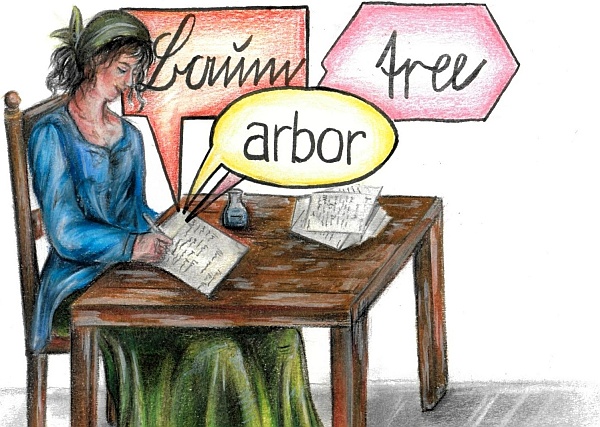Programme (as of 5 March):
Times indicated are for Central European Time UTC+1 (Germany).
Wednesday, 17 March 2021
| 09:00- 10:15 |
Opening of the conference (room 1) – Markus Schiegg (Erlangen) Plenary: Terttu Nevalainen (Helsinki) The register potential of linguistic change: Individual and group perspectives |
||
| Session 1: Intra-writer variation 'from below' I |
Session 2: Identity and supralocalisation |
|
|---|---|---|
| Chair: Jill Puttaert (Leiden) | Chair: Andreas Krogull (Leiden) | |
| 10:30- 11:00 |
Agnete Nesse (Bergen) Varying spelling techniques in the texts of an adult, inexperienced writer |
Anita Auer (Lausanne) The relationship between intra- and inter-individual variation and supralocalisation processes |
| 11:00- 11:30 |
Katharina Gunkler-Frank (Erlangen) Clitics in German patient letters from the 19th and 20th centuries |
Josh Brown (Canberra) Urban vernaculars and intra-speaker variation: Linguistic accommodation in merchant letters from Milan |
| 11:30- 12:00 |
Aurelija Tamošiūnaitė (Mainz) Positioning the self ‘from below’: A case study of peasant’s complaints (1901) |
Jennifer Hendriks (Canberra) The malleability of sociolinguistic identity: Intra-writer variation in the De Baccher/Thijs Family correspondence, 1590-1622 |
| 12:00- 14:00 |
Lunch Break | |
| Session 1: Intra-writer variation 'from below' II |
Session 2: Intra-writer variation in the Middle East |
|
|---|---|---|
| Chair: Christine Elsweiler (Munich) | Chair: Israel Sanz-Sánchez (West Chester) | |
| 14:00- 14:30 |
Marijke van der Wal (Leiden) Early Modern delegated writing: A case of intra-writer variation or a more complex phenomenon? |
Martina Schmidl (Vienna) Intra-writer variation in Late Babylonian letters |
| 14:30- 15:00 |
Anita Auer, Anne-Christine Gardner & Mark Iten (Lausanne) Patterns of linguistic variation in pauper petitions from the parish of Pangbourne, Berkshire |
Esther-Miriam Wagner (Cambridge) Intra-writer variation in the Arabic sources of the Cairo Genizah |
| 15:00- 15:30 |
Frauke Griese (Duisburg-Essen) “I am having quite a good time dodging the shells” – Exploring lexical emotional perspectives in Scottish war correspondence |
Marta Andrić (Zagreb) Intra-Writer variation in Ottoman Turkish: The case of Evliya Çelebi |
| 15:30- 16:00 |
Screen Break | |
| 17:45 | Get-together (wonder.me) | |

Thursday, 18 March 2021
| 09:00- 10:15 |
Plenary (room 1): Juan M. Hernández-Campoy (Murcia) Intra-speaker variation and descending into the real world of epistolary interaction - Historical Sociolinguistics book series presentations – Nils Langer (Peter Lang); Terttu Nevalainen & Marijke van der Wal (John Benjamins) |
||
| 12:00- 14:00 |
Lunch Break | |
| Session 1: Standardisation and language historiography |
Session 2: Historical Pragmatics and Discourse Analysis |
|
|---|---|---|
| Chair: Stefan Hartmann (Düsseldorf) | Chair: Simon Pickl (Salzburg) | |
| 14:00- 14:30 |
Vince Liégeois (Burgundy) Intra-writer variation and the Italo-Romance “philological problem”. A case study of Old Sicilian syntax. |
Phil Beier & Gohar Schnelle (Berlin) Register dependent variation. Instructions in Notker’s Psalterium and the Revelations of St. Birgitta |
| 14:30- 15:00 |
Peeter Tinits (Tallinn) Mechanisms behind standardization of written Estonian 1880–1920 |
Christine Elsweiler (Munich) Intra-speaker variation regarding request strategies in Scottish letters (1500–1700) |
| 15:00- 15:30 |
Eneko Zuloaga & Dorota Krajewska (Basque Country) Intra-writer variation and speaker design in pre-standardized Basque dialects |
| 15:30- 16:00 |
Screen Break | |
| 17:45 | Get-together (wonder.me) | |

Friday, 19 March 2021
| Session 1: Variation in legal and administrative documents II |
Session 2: Norms and usage in Dutch |
|
|---|---|---|
| Chair: Lena Aristarkhova-Schmidtkunz (Erlangen) | Chair: Katharina Gunkler-Frank (Erlangen) | |
| 09:15 09:45 |
Christa Schneider (Bern) Towards the written language in Early Modern Bern (Switzerland) |
Iris Van de Voorde, Gijsbert Rutten, Rik Vosters & Marijke van der Wal (Brussels, Leiden) Historical pluricentricity in the Dutch language area |
| 09:45- 10:15 |
Snježana Husinec (Zagreb) Metalinguistic discourse of legal professionals: What does it reveal about the history of the Croatian language of the law? |
Eline Lismont & Rik Vosters (Brussels) Norms and usage: A case study of Dutch |
| 12:00- 14:00 |
Lunch Break | |
| 15:30- 16:00 |
Screen Break | |
| Session 1: Intra-writer variation in heritage settings |
Session 2: Intra-writer variation in prescriptive and nationalist texts |
|
|---|---|---|
| Chair: Samantha Litty (Erlangen, Flensburg) | Chair: Nils Langer (Flensburg) | |
| 16:00- 16:30 |
Yasmin Crombez, Rik Vosters & Wim Vandenbussche (Brussels) Exploring layers of language contact in emigrant writing |
Eleonora Serra (Cambridge) Looking for norms for informal writings: An examination of sixteenth-century Italian metalinguistic texts |
| 16:30- 17:00 |
Doris Stolberg (Mannheim) Intra-writer variation within and between languages: Developmental and social aspects |
Spiros A. Moschonas (Athens) Intra-writer variation in prescriptive texts: On the standards of Standard Modern Greek |
| 17:00- 17:30 |
Nora Dörnbrack (Oslo) Longitudinal variation in verb inflection in Mary Ann Wodrow Archbald’s writings |
Giedrius Subačius (Urbana-Champaign) Modification of Simonas Daukantas (1793–1864) own prestandard Lithuanian orthography |
| 17:30- 18:00 |
Screen Break | |
| 18:00- 19:15 |
Plenary (room 1): José del Valle (New York) Making voices, making publics: Language history and linguistic memorialization - HiSoN 2022 – Juan M. Hernández-Campoy, Tamara García-Vidal (Murcia) - Closing of the conference – Judith Huber (Erlangen) |
||
| 19:15 | Get-together (wonder.me) | |

